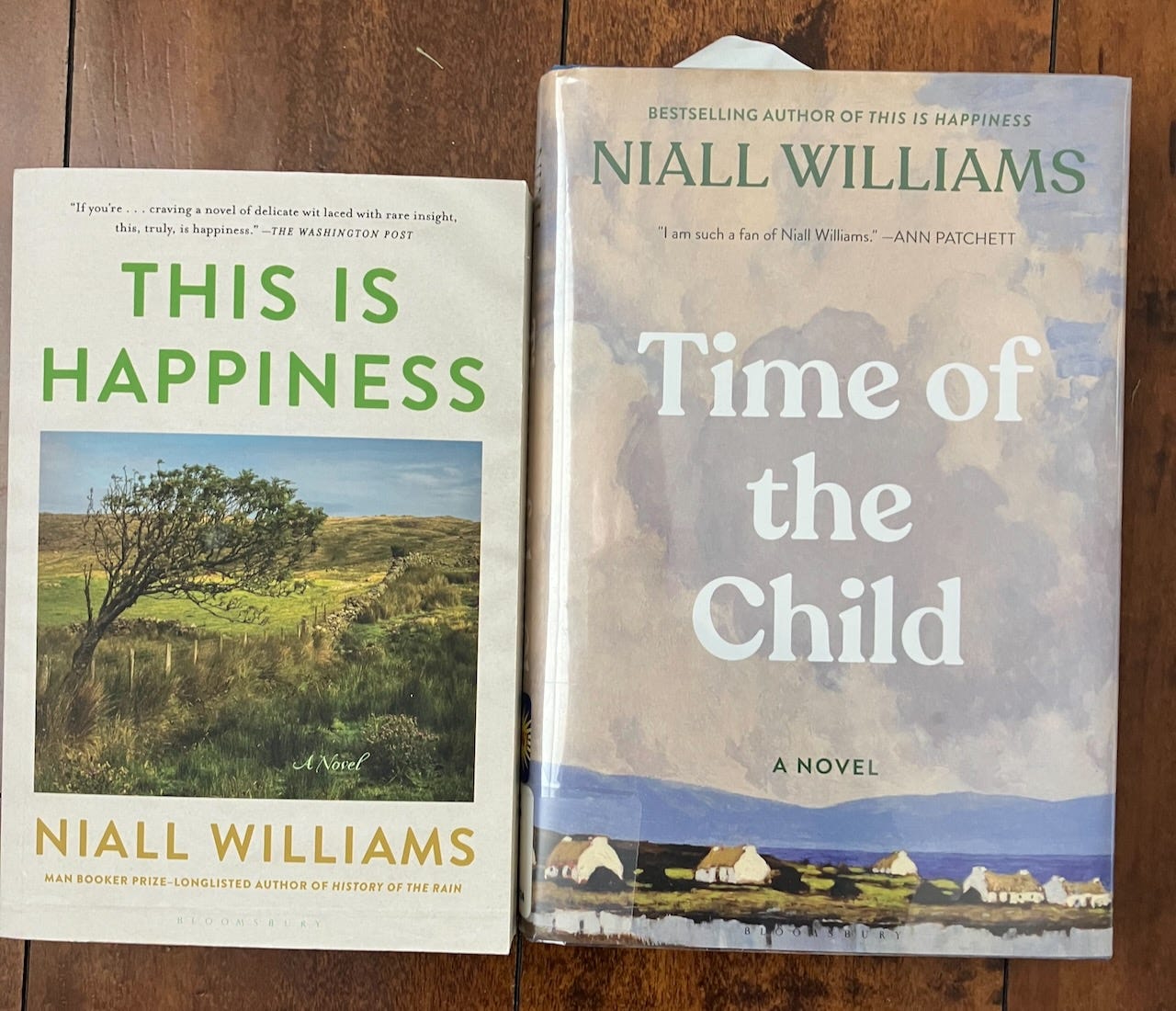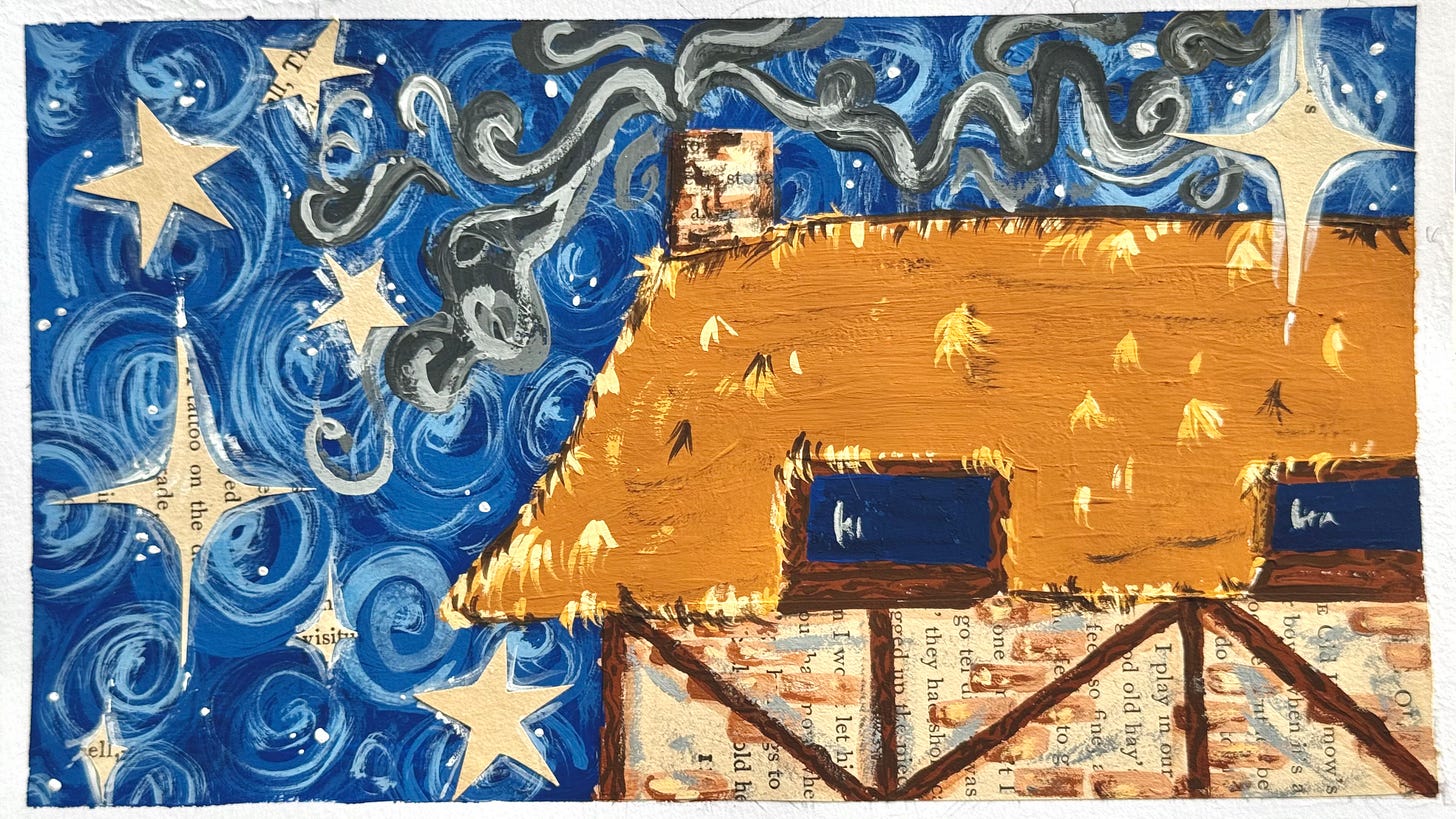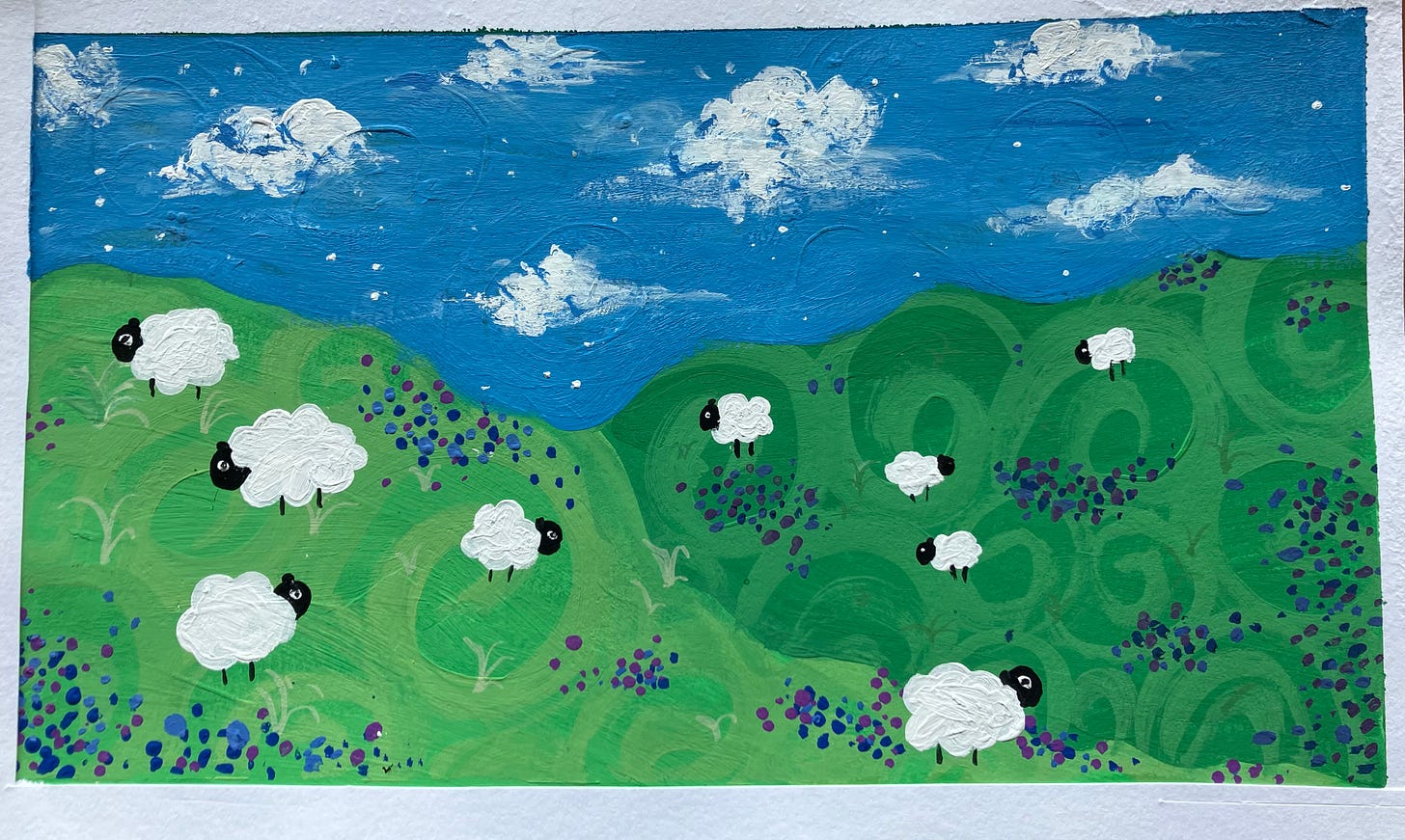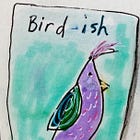On Judging Whether the Things We Make are Good or Bad
what I learned from author, Niall Williams
Dear Reader,
I long to go about my work as an artist, mother, and teacher without getting paralyzed by fear. From years of wrestling with this, I know the fear is connected to whether the work will turn out good or bad, succeed or fail. It’s difficult not to continually step outside of my body and become the judge of my own life.
Thankfully, by the grace of God and a lot of hard-earned lessons, I show up to my work with much more compassion toward myself than I did twenty years ago. Instead of becoming fully paralyzed, I freeze up for a few hours but I’m bound to eventually thaw and keep moving. For example, I’ve found a way into visual art that doesn’t demand perfection but embraces the fingerprint of the human artist that makes it. After twenty-four years as a mother (the job I’ve held the longest) I know there is no getting it perfect, there is only the choice to keep showing up. Even so, the reality is that after years of removing layers of shame and judgement, I still have so much to learn.
This spring, ninety-five percent of my creative energy is being channeled toward a theater production with my students. It’s been years since I put on a production and I often question whether I’m making the process more complicated than it needs to be. Thanks to me and my big ideas, my two-hour weekly teaching job has morphed into enough hours that I could easily qualify for insurance benefits. As I do the next thing from a long list of tasks in my Notes app, the truth is that I’m waiting for the night of the performance to find out if I’ve made something good or bad.
Enter Stage Right: Author Niall Williams
This past month I met up with two dear friends to hear Ann Patchett interview author Niall Williams. I confess that I hadn’t actually read any of Williams books1 but I’d heard great things about him and since he lives in Ireland it seemed like a rare opportunity.
We settled into our seats at Parnassus Bookstore and Williams had the room spellbound from the very beginning. Yes, he had an Irish accent but it was his gift of storytelling, his thoughtfulness, and his unique process as a writer that held us captive until the final moments. I think we all felt transported to a different, quieter, and slower life in a small village in Ireland.
Weeks later, two things from the conversation have continued to influence my creative process.
First, Williams is extremely patient with his work, trusting his relationship with the story he’s writing. When he began his first novel he only knew the opening line.2 He continued to write just that one line for six weeks and two days until he came up with the second line. Unlike the majority of authors who share their process, he doesn’t set word count goals each day, he simply writes what comes whether it’s one sentence or several pages. He stops writing for the day when he knows what’s going to happen next, that way he has momentum when he starts again the next day. Because of the slow and trusting way that works, he usually writes only a single draft of his books.
While he works on his draft he doesn’t discuss anything about it with his wife, who is his first reader and editor. They cook and work in the garden side by side but they don’t talk about what the novel is about or how it’s going during the one to two years that he’s writing the draft. When he’s finished the draft, he prints it out and gives her the stack. Each day he watches the unread pile diminish and the read pile grow taller but they still don’t discuss it until she’s finished.
The whole picture of what’s going on inside his head and inside their house lacks the often frantic energy I bring to my own creative process. Will I have an idea for the next newsletter? How am I going to create the Dragon’s costume? I promise you my husband is hearing all about the twists and turns along the way. Thinking about William’s patience doesn’t make me feel bad about my own path but it does invite me to ask questions. What if I decide to trust that the next writing idea will come? What is my version of patience and trust when it comes to this theater production? Which leads to the second big takeaway from the interview.
Williams said the best compliment he’d ever been given about his work was from his wife and it was about his most recent book, Time of the Child. When she finished reading the draft she told him it was “pure Niall Williams”. He explained that he doesn’t define success by whether something he writes is good or bad. What he cares about is writing in his own, unique voice, something that’s an extension of his own skin or “pure Niall Williams”.
A theater production is different from a novel of course since I’m collaborating with seven students and I want to see them shine much brighter than my hand as the director working behind the scenes. But the question still creeps in: Will it work or will it not? Have I succeeded or have I failed? Williams has given me a different question:
Do I trust that the ideas I have are part of my voice as a teacher and a director?
Together with my students, we’re making something unique that has never been made before. Sure, others have used the same script but not with the same students and the same design elements coming together to tell the story. What if I don’t have to hold the question of good or bad over my head for another twenty-five days until the performance? What if I trust that we’re telling the story we’re meant to tell, the way we’re meant to tell it?

What if I trust that we’re telling the story we’re meant to tell, the way we’re meant to tell it?
What about you?
Is there room for more patience with yourself?
Is there more room to trust yourself?
Is there room to lean into the unique voice God has given you?
Continue the Journey
Read about the author and book that changed the way I make art.
Read this article for more about Niall Williams, his new book and some of his ideas I’ve shared here.
Blessings from the Guest Nest,
Aimee
P.S.—Thanks so much for reading! You can support the writing and art I share each week by donating to my art supply fund.
I’ve since started reading William’s latest book. I tend to skim paragraphs when I read but I find myself trying to read slowly and not miss any of the beautiful sentences in Time of the Child.
The first line of his first novel: “When I was twelve years old God spoke to my father for the first time.” (from Four Letters of Love)







"What if I trust that we’re telling the story we’re meant to tell, the way we’re meant to tell it?"
This is such a great question, Aimee, really resonating with me as someone who, like you, "... long(s) to go about my work as an artist, mother ... without getting paralyzed by fear." Paralysis in my creative life is something I've battled for as long as I can remember, to this day, though I sense some shifting as I approach my older years and am beginning to care a wee bit less about what other people think.
Love what you shared from Niall Williams, as well as the interview with him that you linked to. I'm currently in the middle of Time of the Child, which is just as beautifully written as This is Happiness. And wow, are you lucky to live near Parnassus! Patchett interviewing Williams? Dream interview to attend! Glad you shared your experience so I could get a taste of it!
Oh Aimee, I am so jealous! I love Niall Williams! I’ve only read the two books you have pictured but they were so, so good. I listened to the audio books (the Irish accent was great!), but have said I want to go back and read the actual books so I can savor those sentences.
I also love Ann Patchett and have yet to visit Parnassus. So yeah. That would have been a dream night. Thanks for giving me a glimpse into the evening and into Williams’ writing process. So interesting! What you say about finding and trusting our voice is so true. Thanks!